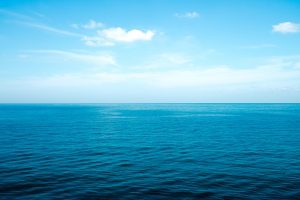The ocean is a massive ecosystem that is full of interesting creatures and unsolved mysteries. Currently, only 5% of the ocean’s depths have been explored, but one thing many scientists have studied is whales.
Whales are members of the cetacean family, which encompasses roughly 90 species. When looking at these massive and ancient creatures, many people may have wondered if whales die of old age.
The simple answer is no, but it’s a bit more complicated than that.
There are 8 main causes of death for whales. In this article, we will go over all the causes and explain how age can be a factor that leads to their death, but it isn’t the only cause.
Table of Contents
1. Hunting
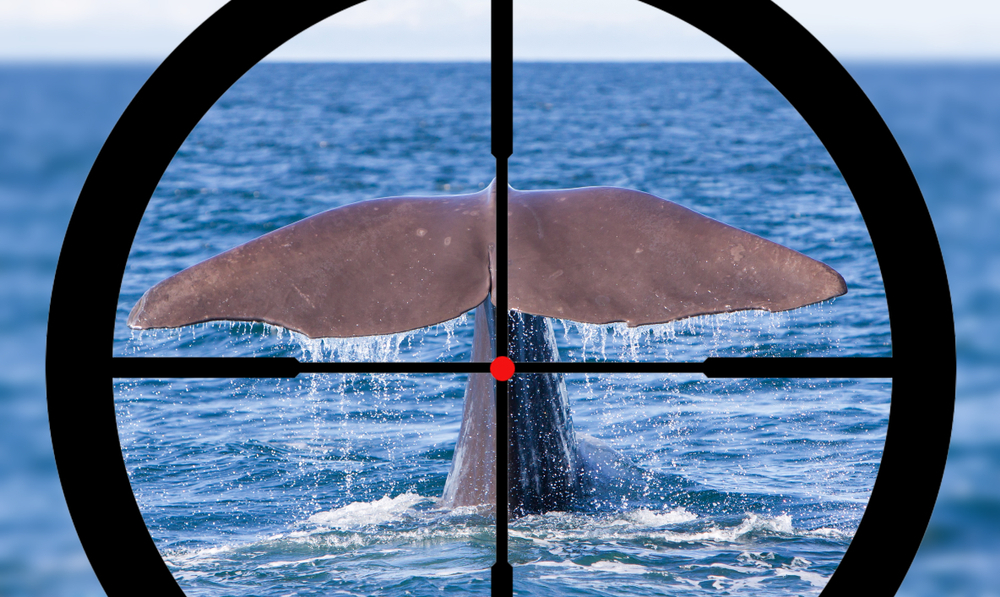
One of the main causes of death for whales is hunting. While many countries have banned the hunting of whales, countries like Japan and Iceland are responsible for thousands of whale deaths each year.
In Japan, commercial whaling ended in 1986. However, it was recently allowed to recommence in 2019. Thankfully, the demand for whale meat in Japan is on the decline, so hopefully, the practice will once again be banned in the near future.
Iceland also had a short ban on whaling which lasted 14 years. Unfortunately, this ban was lifted and over 1500 whales have been killed since.
Thankfully, due to COVID restrictions, the last 3 years have been kind to whales and fewer hunters have been able to go out.
While this may not seem like a large number, whales are very slow breeding animals. Some larger species don’t reach sexual maturity for 20–30 years.
Then, once mature, they may only produce one calf every few years. Removing even a few of the breeding population can have a large impact on the future of the species.
2. Beaching
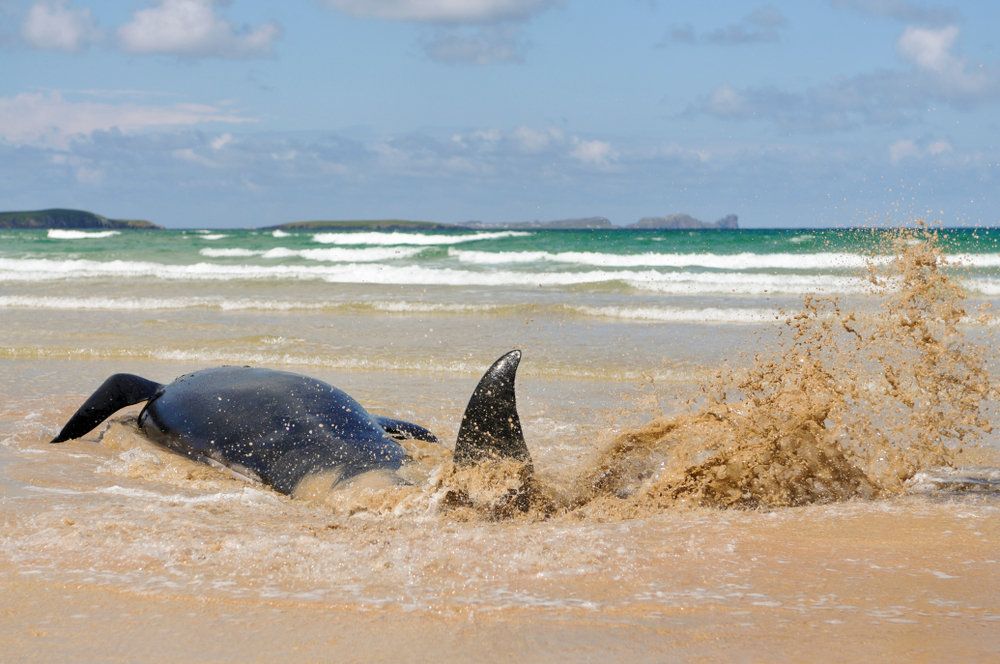
There are many causes of beaching in whales. Some species like Orcas can beach themselves while hunting sea lions.
Most of the time they can make it back out to deep water, but sometimes they can get stuck and are unable to get back out to sea.
Other species may beach themselves due to illness, old age, or perceived dangers.
An elderly whale may be more likely to beach themselves due to fatigue, and once beached they can actually suffocate from the weight of their bodies pressing on their internal organs.
Luckily, many whales have been saved from beaching by concerned citizens who have organized and helped them get back out into the water.
Mass beaching events – where scores of whales beach themselves at once – aren’t completely understood by scientists. Some think that when one whale from the group becomes beached the rest of the group will follow, others think it has to do with tides or sonar from boats.
3. Predation
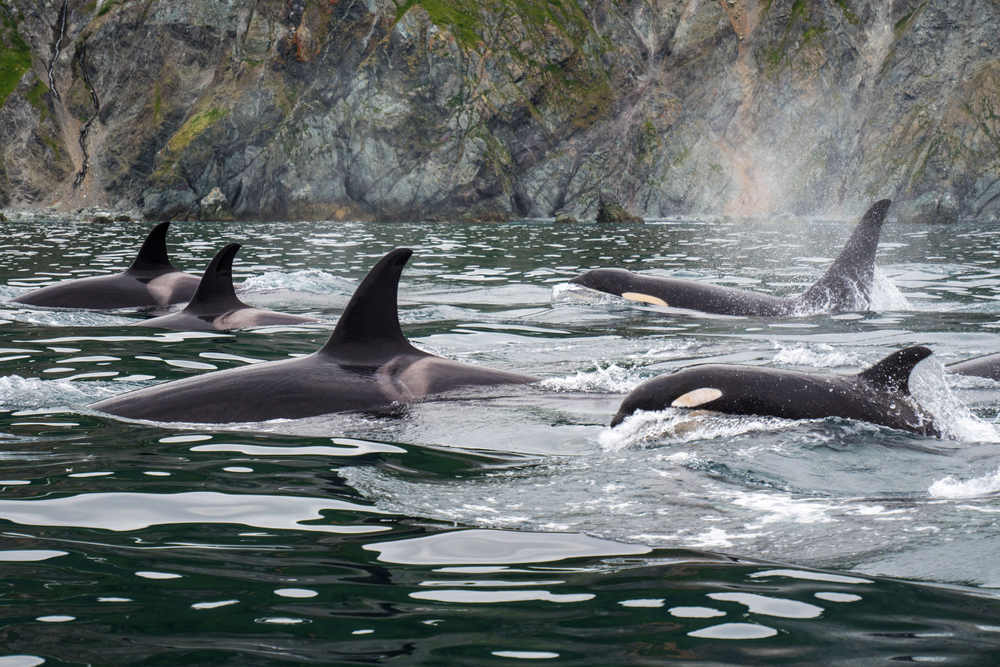
While it is uncommon for a whale to be killed by predators, it isn’t unheard of. Recently, a pod of orcas was seen hunting a blue whale, and sharks will often try to catch and kill baby whales or elderly whales that have a harder time getting away and defending themselves.
For the most part, the worst predator for whales is humans, but sharks, predatory whale species, and even polar bears can all pose a threat.
It is thought that even though whales aren’t a normal target for orcas, they are starting to hunt them due to a lack of other food items available. This could be due to global warming, overfishing in their hunting areas, or a combination of both.
4. Pollution
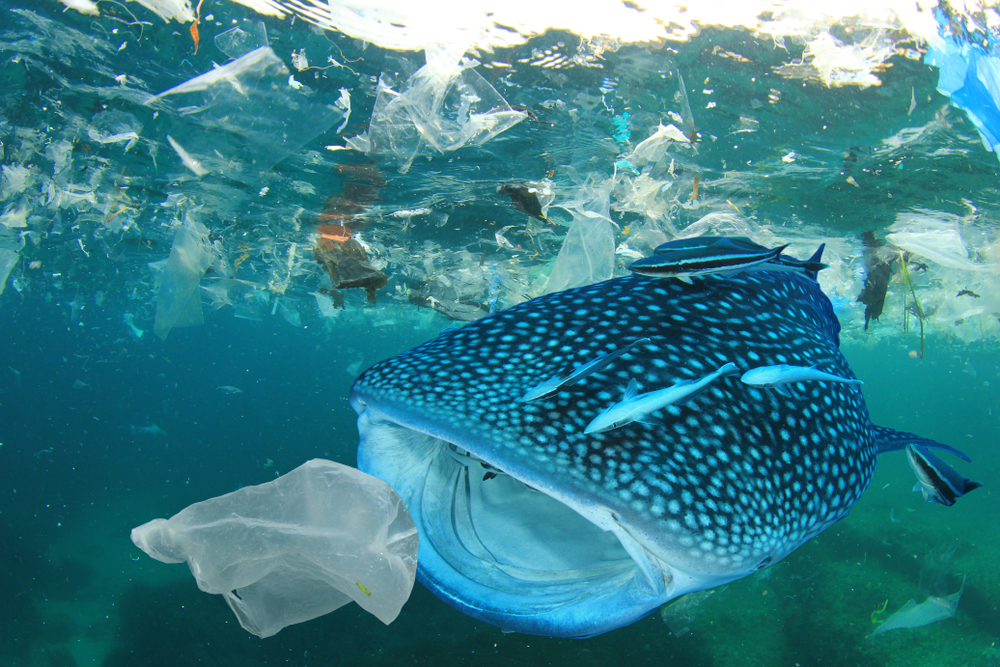
Another man-made hardship for sea life is pollution. Many species of whales can find themselves in commercial fishing nets where they will drown from being unable to surface and breathe.
For filter-feeding species like humpback and blue whales, plastics can be a huge issue. Some deceased whales have actually been found with stomachs full of plastic due to pollutants in the ocean.
These whales actually starved since their stomachs were full of unpassable materials and they could no longer eat.
Another common problem with pollution is fishing lines and damaged nets. These can wrap around the fins of whales, causing cuts and inhibiting their ability to swim.
There are several videos on the internet showing people helping whales by cutting these pollutants off of them.
5. Ship Strikes
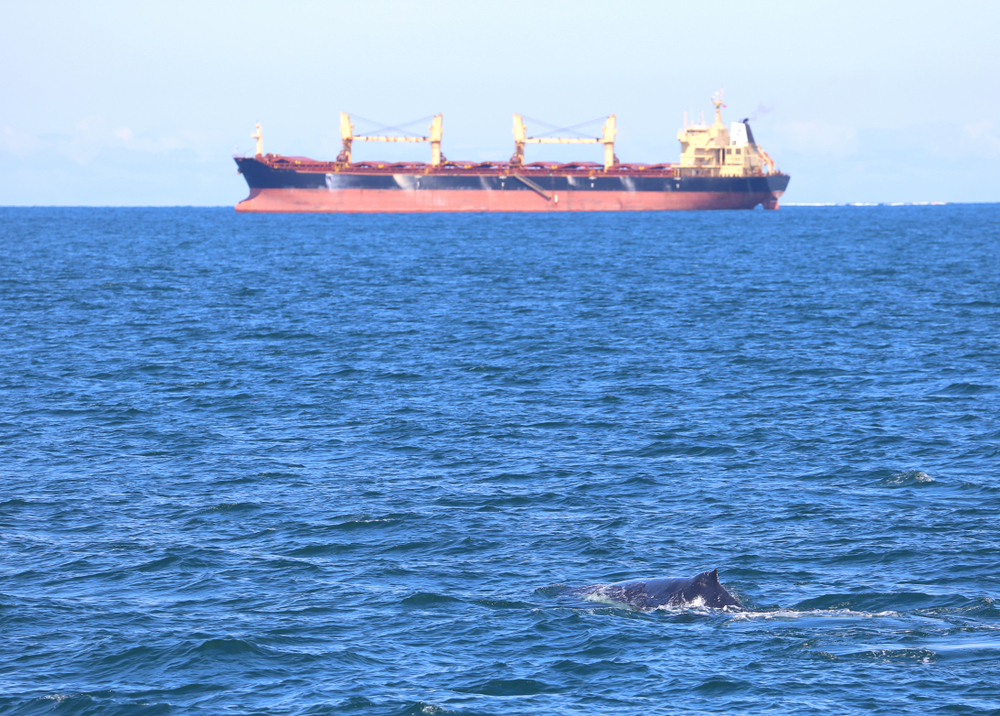
Whales, especially large deep-diving species like blue whales and humpback whales, will frequently spend time relaxing at the surface of the ocean catching their breath. This is where many suffer from ship strikes.
Both large cargo ships and cruise liners are frequently responsible for hitting large whales and either killing them instantly or causing them to have long-term injuries or issues that ultimately lead to their death.
Some activists and scientists have proposed having boats emit a loud noise that would deter whales from coming near them or get them to move out of the way before they are hit, but the costs involved are prohibitive and many are unsure if this method would work. Since large whales are rarely preyed upon, they aren’t normally afraid of loud noises or things coming near them.
6. Starvation
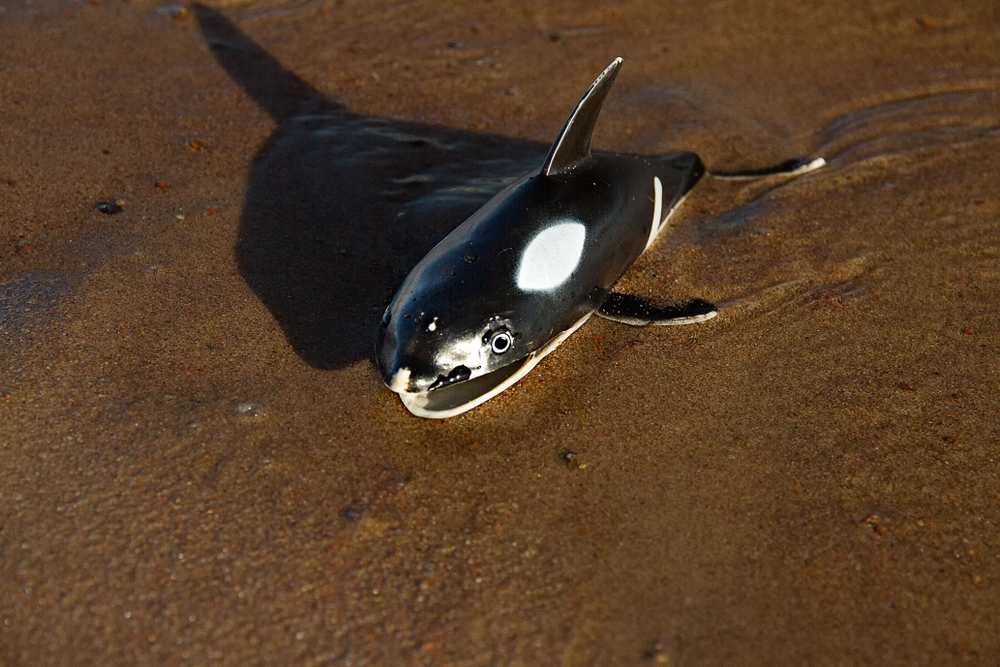
While old age doesn’t directly kill whales, it can lead to issues like starvation. An elderly whale may have trouble catching prey or swimming enough to filter enough food.
Another cause of starvation is a lack of food. Some species of orcas that are salmon-specific feeders are having trouble getting enough food to eat and thrive.
While not many have died from starvation so far, it will likely be an issue in the near future if something isn’t done to protect the salmon they feed on.
Many whale lovers native to Alaska are hoping that their native salmon-eating orcas will branch out and begin eating other foods such as porpoises and other fish. This could save the species from extinction.
7. Illness
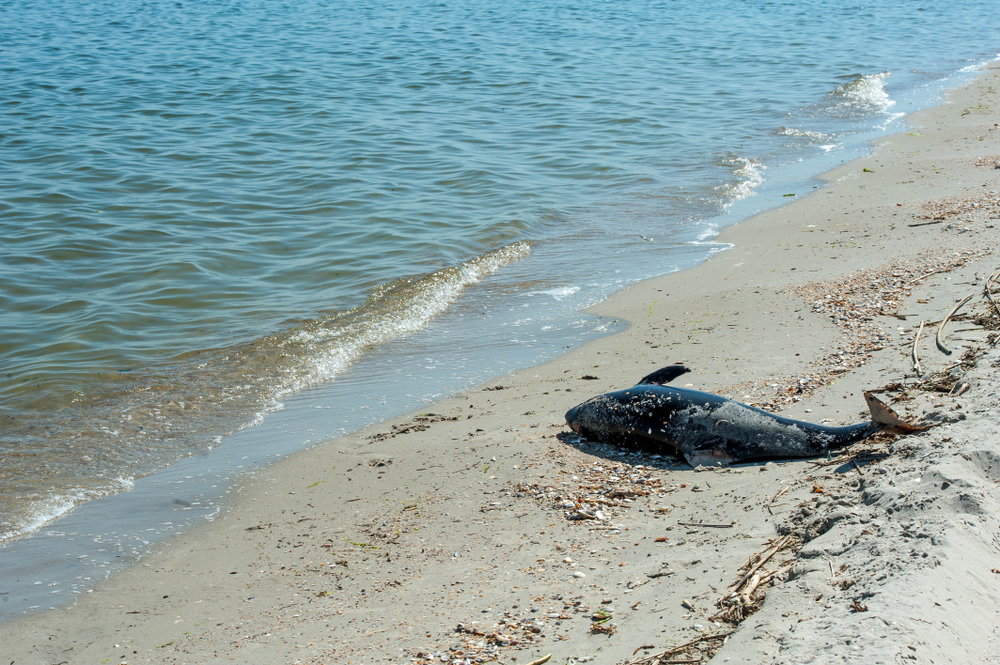
We may not think of whales suffering from illnesses, but they are susceptible to infections from injuries. If a whale is attacked by a predator, injured in a ship strike, or has a cut from pollutants like nets, bacteria can get into the wound and cause the animal to become septic.
While this isn’t a common occurrence, it can happen, especially in whales that may have a weakened immune system, such as elderly and baby animals.
Illness can also lead to massive beaching events. In Canada, there has been an increasing number of beached beluga whales due to the whales contracting a parasite called Toxoplasma gondii.
This is a parasite that is normally spread by cat feces, and scientists aren’t sure why it is now affecting many arctic mammals.
8. Drowning
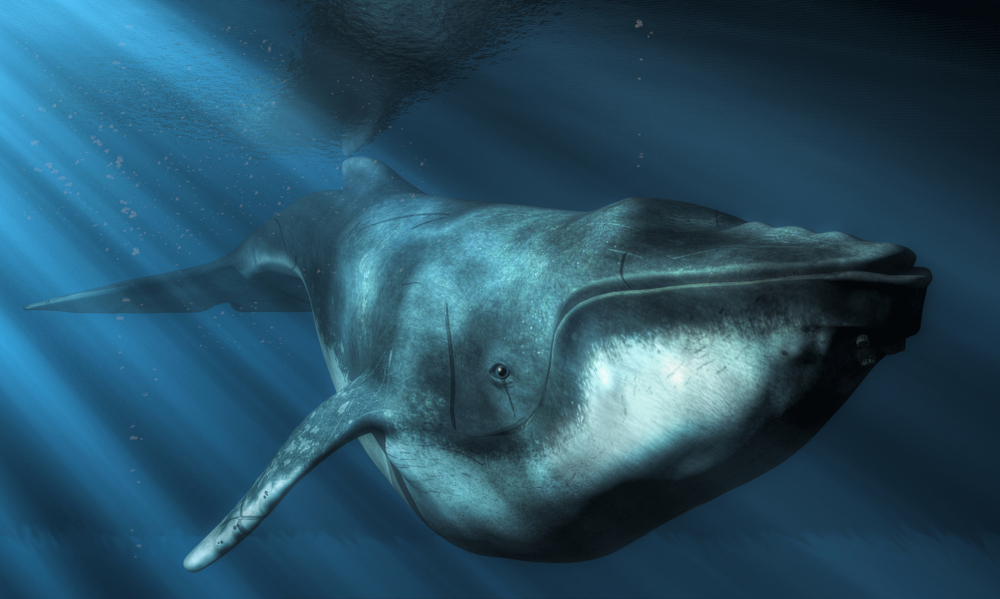
There is some debate among scientists about whether elderly whales die from drowning or from old age. It’s honestly hard to prove or disprove either theory.
It is thought that as whales get older, they can have more difficulty swimming, and this causes them to have trouble surfacing to breathe.
Whales can also drown when they are caught in commercial fishing nets. While some fishermen will attempt to release whales they notice are in their nets, others may not see the whales or may not care.
Pollutants on the fins of whales can also eventually cause them to have trouble swimming and drown. Nets wrapped on pectoral fins and caudal(tail) fins can be especially dangerous.
So, there you have it. Whales can die from a variety of causes, some of which may be influenced by old age. So can we say that whales die from old age? What do you think?














